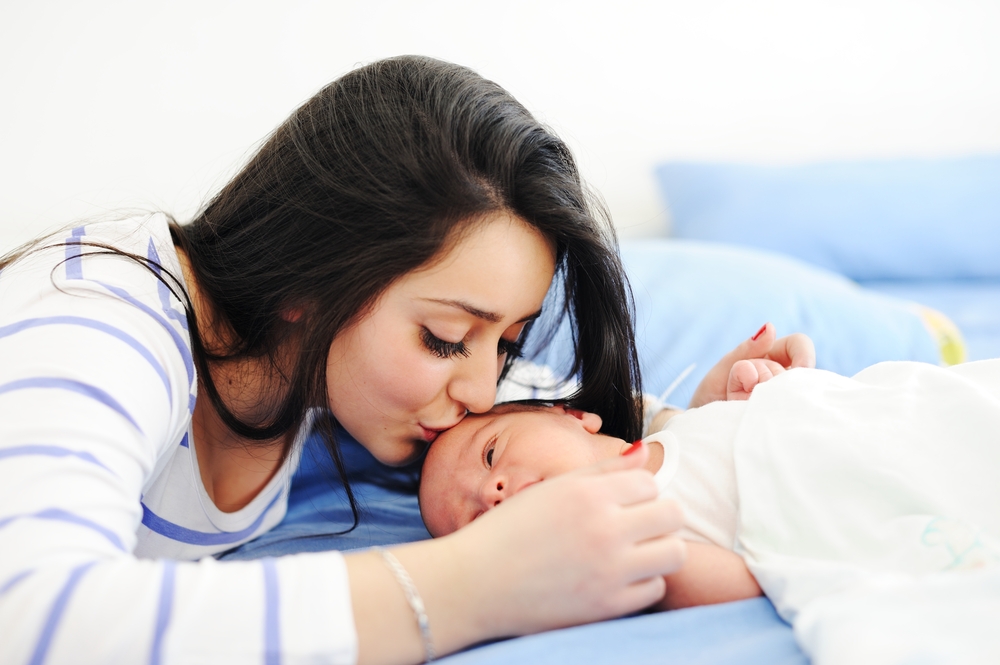
Obstructive sleep apnea affects adults more, however, young children, including babies and infants can get obstructive sleep apnea too when napping in the best pack and play with bassinet or sleeping in crib, although that is rare in healthy children. Let’s go through the causes and signs to watch out for to help you understand more about this sleep problem in babies.
Can babies have obstructive sleep apnea? What causes it?
Babies and young children can have obstructive sleep apnea, and the main cause for the condition happening in kids is usually due to the presence of enlarged adenoids and tonsils. Sometimes, obstructive sleep apnea can also happen because of obesity or allergies.
Other medical factors that could potentially cause obstructive sleep apnea in babies and infants include:
Small jaws
Low birth weight from the start
Abnormalities on the face or in the skull
Diseases related to low muscle tone, such as Down Syndrome
Neuromuscular issues
Sickle cell disease
Obstructive sleep apnea history that runs in the family
Is obstructive sleep apnea in babies dangerous?
In babies, obstructive sleep apnea can lead to repeated episodes of breathing problems and even serious health problems. This could cause complications like heart problems and problems with their growth. A more severe pediatric sleep apnea could also result in death, similar to sudden infant death syndrome (SIDS) due to issues with respiration.
If you have concerns about your baby’s breathing and notice their respiration seems abnormal including gasping, it’s important to talk to your doctor about the possibility of obstructive sleep apnea.
What are the signs of obstructive sleep apnea to look out for in babies?
There are many symptoms of obstructive sleep apnea in babies and young children, and they vary depending on the severity of the problem. Some of the most common signs include:
Sleepiness and fatigue
Irritability
Fussiness or crankiness during the day
Difficulty falling asleep and frequent awakenings during the night
Gasping for air during sleep
Poor concentration and memory recall
Dry mouth at night
Loud snoring
Choking during sleep
Hot sweating at night
Sleeping in weird positions
Lack of appetite
Poor weight gain
If you think your baby might have obstructive sleep apnea, upon noticing signs like consistently feeling tired during the day, always feeling restless and behaving poorly even after a night’s sleep, make it a point to talk to their doctor to get their condition diagnosed and treated early.
Usually, doctors will check for tonsils in babies. If necessary, your child may need to be examined by the ear, nose and throat specialist for further diagnosis if suspected of having enlargement of tonsils and adenoids. Your child may also need to stay overnight at the hospital for a sleep study for doctors and specialists to determine the sleeping activity, such as the heart rate, breathing rate, oxygen levels and so on.
How is obstructive sleep apnea in babies treated?
Because babies are more likely to succumb to infant death from lack of proper respiration, it is important to treat it as soon as possible. Treatment is largely dependent on the cause of pediatric sleep apnea.
If the cause of the sleep apnea in babies is from allergies or hay fever, usually medication will be issued and the child’s condition will be further monitored.
However, treating a more severe case of obstructive sleep apnea in babies is different. This is done by using a continuous positive airway pressure (CPAP) machine or sleep apnea mask. If such a treatment is not successful, doctors may also suggest surgery be a necessary procedure to remove the swollen tonsils and adenoids.
Conclusion
Obstructive sleep apnea can occur in babies, and there are signs parents should look out for. If you think your baby may have obstructive sleep apnea, be sure to consult a doctor. In case your baby has been diagnosed with sleep apnea, you should make sure that they are getting regular medical checkups. Talk to your doctor and follow up about how to treat obstructive sleep apnea in babies.
Hope you have a better understanding of what obstructive sleep apnea is about so that you know what to do and when to seek medical advice. After all, a healthy, restful baby means a happy baby, mommy, and daddy!
While all children may not be role-model sleepers, there is a difference between little sleep and sleep disorders that parents should look for, like snoring and frequent nightmares. Our blog “7 Signs Your Child Might Have a Sleep Disorder” delves deeper into these warning signs, while our specialist at Alaska Sleep Clinic can provide an accurate diagnosis. If you live in Alaska, you can call for a free 10-minute consultation or schedule a sleep study today.
FREE Pediatric Sleep Studies e-book
Download The Pediatric Questionnaire











